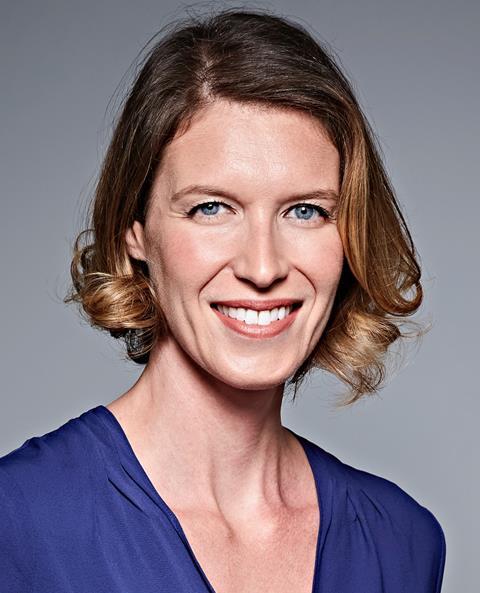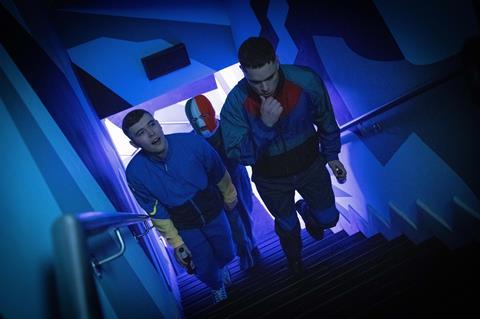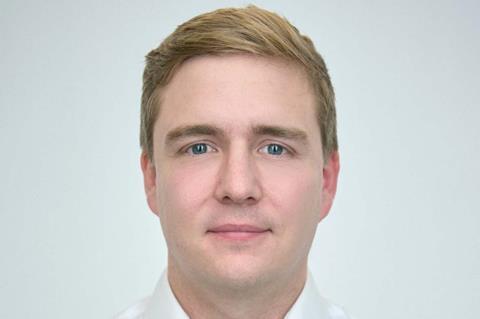Rising production costs, a weakened presales market and ongoing Brexit challenges are prompting an increasing number of UK producers to work with international partners for the first time.

International co-production is a new frontier for many UK independent producers, as an increasing number who are struggling to pull together rising budgets at home are finding avenues of finance through working with European and international partners.
“I recognised that to keep on financing independent films, I needed to look outside the usual suspects from where I had been sourcing financing. [Co-production] is a great way to square the circle,” says producer Nicky Bentham of Neon Films, whose credits include The Duke and The Silent Storm. Bentham was in Sicily earlier this year scouting locations for Brides, which she is making with Rome-based Rosamont as well as Cardiff-based ie ie productions.

Bentham points out that the UK’s withdrawal from the European Union is prompting producers to deliberately consider how to bring a non-UK audience to their work. “Since Brexit there is a general feeling that we have to make more of an effort to open up to co-operating and collaborating. Part of the benefit is not just in financing the film but in building international audiences for the project,” she says.
In general, UK producers welcome the BFI’s UK Global Screen Fund (UKGSF), launched in 2021, as a “gamechanger” in enabling them to be viable participants in international productions. “It meant I could attend co-production markets and not have to sit there and say, ‘Sorry, it’s hard to help you from the UK unless it’s an explicitly commercial project and English language,’” says producer Emily Morgan of Quiddity Films about how UKGSF is opening up new vistas for UK producers.
Producer Chris Curling of London-based Zephyr Films recently finished work on Ireland-UK co-production The Miracle Club, directed by Thaddeus O’Sullivan and starring Laura Linney, Kathy Bates and Maggie Smith — a project that received backing from UKGSF. He is now working on an Australian co-production, Sophie Hyde’s An Ideal Wife, about the sexual awakening of Constance Lloyd, wife of Oscar Wilde, to which Emilia Clarke is attached.
Sold by Embankment Films, the picture is being made by Matthew Gledhill’s Wheelhouse Productions in Australia, Olivier Delbosc’s Curiosa Films in Paris and Curling’s Zephyr Films in London. It has secured backing from Screen Australia and the South Australian Film Corporation. “We can reach a decent and appropriate budget level by maximising the soft money, and putting them together with the sales that Embankment have managed to do on the film,” Curling says of this financing jigsaw.
The advantages of co-producing are clear: working with EU partners gives UK producers potential access to Eurimages funding and to Creative Europe Media support, both otherwise unavailable to UK filmmakers. It is why the BFI, Screen Scotland and the British Film Commission (BFC) have been busy courting potential international partners this year. At Cannes in May, ‘Cappuccino with the Italians’ brought together 20 Italian film commissions with UK producers; while 10 production companies and four sales companies headed to Australia to meet their counterparts at Screen Forever in Queensland in May. The BFC has invited Spanish producers to the UK to meet potential partners and financiers in December, and a group of French producers will visit the UK during the BFI London Film Festival this month (UK producers visited France in January).
In August, UK projects with producer/director teams attended Haugesund for the New Nordic Film co-production and finance market, while further filmmaker teams presented their works-in-progress projects at Locarno Film Festival’s Locarno Pro showcase ‘First Look on UK Film’. Meanwhile, a panel featuring Curling, BFI Filmmaking Fund director Mia Bays and UKGSF head Denitsa Yordanova — titled ‘Your next film is a co-pro with the UK’ — was held at the recent Toronto International Film Festival.
“In Europe, [production] is supported by regional soft funding, which is accessible in numerous different ways,” says Keith Kehoe, director of investments at UK film financier Great Point Media. “The reason they have that is they can’t support a UK-North American financing model. They can’t tap into the cast that will unlock the pre-sales and unlock the equity.”
Increasingly, neither can UK producers. Recent features backed by UKGSF include projects with India, New Zealand and multiple European partners. One of the most high-profile is The Return, a minority UK co-production with Italy, Greece and France on which The Full Monty’s Uberto Pasolini is the director, co-writer and producer. The cast is led by Juliette Binoche and Ralph Fiennes.
“The first building block was a deal with [Italian] national broadcaster Rai. Having that in place meant a deal with a streamer or a studio was going to be more complicated to achieve,” Pasolini explains. “I cannot tell you that if Warner Bros had jumped on the film at an early stage, we would have rejected them… [but] for me co-production is the natural way to do things. For UK-based independents, once our projects are not taken up by streamers and studios, the international co-production route seems to be a very good way to try to complete the financing.”
Sales agent HanWay Films had already sold The Return to Bleeker Street for the US, but Pasolini is trying not to become too fixated on the North American market. “I hope the Global Screen Fund will encourage us as producers to look for projects that are not necessarily generated by us and are UK-based, but to raise the number of co-productions that are non-UK,” he says. “For too many years, the focus of UK producers has been English language and looking west to Hollywood for finance, approval and success.”
Adapting the mindset

UK producers, as Pasolini suggests, are now having to adjust their mindsets. “[We’ve been] relying on the UK tax credit and not thinking about different jurisdictions,” acknowledges Great Point Media’s Kehoe. “But the post-EIS [Enterprise Investment Scheme] single-picture financing world has required the whole of the UK independent film market to adapt. That goes across the value chain from us as financiers to producers and distributors. We have all had to adapt because, frankly, it is a lot more difficult to finance pictures in the UK now. There was so much equity on the ground but now that equity has effectively dried up.”
Co-productions with which Great Point is involved include UK-Ireland project Kneecap, directed by Rich Peppiatt and starring Michael Fassbender. The comedy about a rap group is being sold internationally by Charades and has backing from Screen Ireland, Northern Ireland Screen and the BFI, among others. Great Point is also one of the partners in UK-Finland-Belgium co-production Sebastian, directed by Mikko Makela. The project has BFI and Screen Scotland support and is produced by James Watson, Ciara Barry, Rosie Crerar, Aleksi Bardy, Severi Koivusalo, Dries Phlypo, Erik Glijnis and Leontine Petit. Lizzie Francke, Jennifer Armitage and Mike Goodridge are executive producers.
European producers have long met and fostered collaborations through professional training programmes such as those hosted by Luxembourg-based European Audiovisual Entrepreneurs (EAVE) and ACE Producers. One encouraging sign is that UK producers are becoming more visible within such programmes. “There is a new generation [of UK producers] who really feel the importance of working on a European level,” says Dutch producer Marleen Slot of Viking Film, citing Quiddity’s Morgan as a prime example.
“It really did come from a personal, cultural place,” Morgan says of why she has embraced co-production. “It was always my ambition to shape my career in that way and work internationally.”
Jacobine van der Vloed, director and head of studies at ACE Producers, agrees there is “definitely interest” from UK producers in joining the programme.
“The main change for UK producers is that, with the growing numbers of applicants from the UK, it has become more competitive for them to get in,” adds Kristina Trapp, CEO of EAVE (six UK producers have been chosen for EAVE since 2020). Trapp acknowledges the work of the BFI in keeping up partnerships with European organisations for the benefit of their producers.
The UK has various bilateral co-production treaties in place, including with Australia, France, Brazil and South Africa. UK producers can also use the European Convention on Cinematographic Co-production to set up projects with European partners. To help smooth the path, BFC has signed a blitz of ‘memorandums of understanding’ (MOUs) in the past 18 months between the UK and Italy, Spain, Austria, Malta and others. The aim is to enhance collaboration between the UK and these partners, allowing filmmakers to access soft money schemes and tax incentives.
While Michelle Jenkins, head of production services at Film London, acknowledges inward investment projects such as Asteroid City (UK-Spain) and Fast X (UK-Italy) are the BFC’s focus, she insists there are opportunities for independent producers. “If you now approach Italian film commissions, they will definitely want to talk to you as part of a co-pro scenario and see what funds you can start tapping into,” she says.
Following the UK-Italy MOU, producer Andrew Bendel of Blue Horizon realised there might be an opportunity to find co-production partners and funding opportunities for his project The Italian Chapel, a wartime drama about an Italian POW sent to the Orkney Islands. Bendel ended up attaching Italian director Francesca Archibugi, whose credits include The Hummingbird. Through Archibugi, Bendel was put in touch with producer Raffaella Leone, owner of the Leone Film Group production and distribution outfit. They are now working together on the project and looking to approach Roma Lazio Film Commission, which launched a $10.6m (€10m) co-production fund last year. Archibugi is due to accompany Bendel on a research mission to the Orkney islands, off the coast of Scotland, in November.
European producers are happy their UK peers are increasingly keen on collaboration, particularly if it helps open up the notoriously tough UK box-office market to their films. But they point out securing a UK partner does not unlock a goldmine. UKGSF resources are relatively limited: eligible companies can apply for funding of up to $370,000 (£300,000) — but awards tend to be lower than that figure. “The UK is not at the same level [in terms of available funding] as, say, when the Netherlands produces with Germany,” says Ace Producers’ van der Vloed.

And many UK producers are simply inexperienced when it comes to co-production. “There’s a long way to go for UK producers to become as savvy as their European peers, because [co-production] is not an engrained model of how we put feature films together,” says Kehoe.
Post-Brexit, there are also issues moving goods and services across borders, which means European producers need a good reason to work with a UK partner. “The UK is much more complicated when it comes to the legal stuff than the other countries in Europe,” says Viking Film’s Slot. She has made two films with Mike Elliott’s London-based EMU Films: Sacha Polak’s Silver Haze, which premiered at this year’s Berlinale, and the director’s Sundance 2019 hit Dirty God. On the latter film, Slot admits she found it “overwhelming how much work and time goes into [the legal contracts]”.
Working practice
There are other cultural differences. Creatively, the BFI funding executives were much more involved in Dirty God than were those from Netherlands Film Fund. There was also a “hierarchy” among the crew on UK sets, which meant they were less easygoing than their Dutch equivalents, but these are small quibbles, says Slot. “Overall, we would love to come back [to the UK] to make films. Mike is an excellent co-producer.”
Slot also acknowledges Screen Scotland’s chief executive Isabel Davis, formerly head of international at the BFI and “a tremendous support because she really believed in European filmmaking”. Indeed, since Davis joined Screen Scotland in 2018, the organisation has supported projects including French director Christian Carion’s 2021 mystery thriller My Son, starring James McAvoy and Claire Foy, which shot in the Highlands, and Eva Weber’s 2022 Merkel.
The feature documentary about Germany’s first female chancellor Angela Merkel originated with Weber through her company Odd Girl Out Productions and Edinburgh-based producer Sonja Henrici of Sonja Henrici Creates. They brought on board European and UK partners including Danish producer Sigrid Dyekjaer with her outfit Real Lava and Lizzie Gillett, then of Passion Pictures but now head of documentary at Misfits Entertainment.
Merkel, which was set up as an unofficial co-production between the UK, Germany and Denmark, received $147,000 (£120,000) through Screen Scotland’s Film Education Funding scheme. It was also backed by the UKGSF, receiving just over $170,000 (£140,000).
Henrici emphasises the importance of UKGSF backing as it is a non-recoupable grant — and therefore money without strings attached. European partners sometimes struggle with the complexity of UK recoupment schedules and contractual arrangements, but Henrici agrees international co-production is the way forward. “Yes, you’re sharing the rights but I love collaborating with different partners,” she says. “It’s going to be more work in some ways but they are also going to help you deliver the film and so you have less to do then.
“It allows us to consider projects we wouldn’t have considered because we wouldn’t have got the money,” Henrici adds. She is now working as the minority co-producer on German director Thomas Riedelsheimer’s feature doc Tracing Light, on which Stefan Tolz and Riedelsheimer’s Filmpunkt and Leslie Hills’ Skyline Productions are the other partners.
Morgan has practical advice for anyone from the UK looking to co-produce with European and international partners. “Don’t do it over email. Meet people, build real relationships, go to the territories you’re interested in and really get to know those ways of working.”






![The Brightest SunScreen[Courtesy HKIFF]](https://d1nslcd7m2225b.cloudfront.net/Pictures/274x183/3/5/0/1448350_thebrightestsunscreencourtesyhkiff_312678.jpg)


















No comments yet